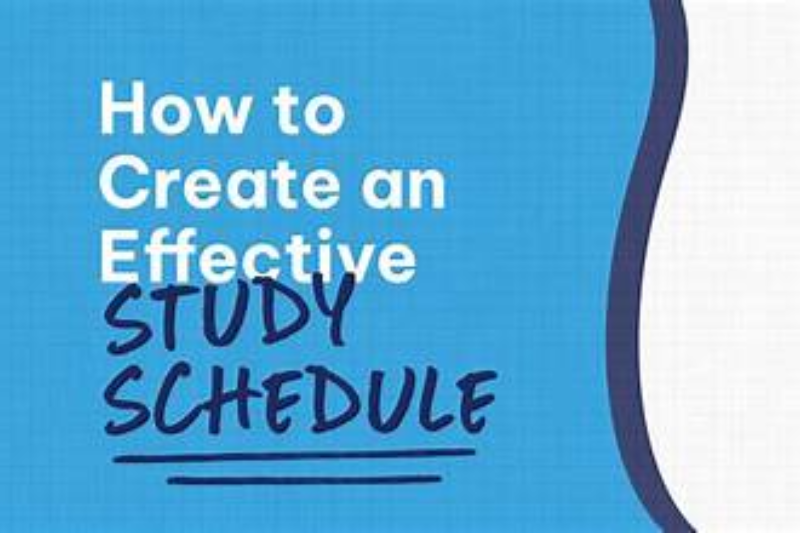Hey! Are you getting ready for your exams and feeling a bit lost about where to begin? You’re not alone. Exams can be stressful, but with the right approach, you can handle them with confidence. In this guide, I’ll walk you through some exam preparation tips that are practical, easy to follow, and can genuinely help you perform your best. Plus, I’ll also share the benefits and drawbacks of each method, so you know exactly what works for you.
1. Start Early and Plan Your Study Schedule

One of the golden exam preparation tips is to start your preparations early. Don’t fall into the trap of last-minute cramming. Instead, make a study timetable that breaks down your syllabus into small, daily tasks.
Benefits:
- Reduces last-minute stress.
- Gives you ample time for revision.
- Helps in balancing multiple subjects.
Drawbacks:
- Requires strong self-discipline.
- Can be challenging if you’re already short on time.
How to do it:
- Divide your subjects based on priority (difficult ones first).
- Allocate specific topics to each day.
- Leave buffer days for revision or unexpected delays.
2. Understand the Exam Format and Syllabus
Before you even start studying, get to know the exam format, marking scheme, and syllabus inside out. This helps you focus your efforts where it matters most.
Benefits:
- Saves time by avoiding irrelevant topics.
- You become familiar with question patterns.
Drawbacks:
- Might be time-consuming to gather past papers and exam blueprints.
- Over-focusing on patterns might make you unprepared for surprises.
Pro Tip:
Download past exam papers and solve them under timed conditions to simulate a real exam scenario.
3. Focus on Conceptual Understanding Over Rote Learning
Memorizing without understanding can backfire, especially in application-based questions. One of the best exam preparation tips is to aim for a deep understanding of the subject.
Benefits:
- Helps you tackle tricky or twisted questions.
- Retains information for a longer period.
- Makes revision faster and easier.
Drawbacks:
- Takes more time initially compared to rote memorization.
- Complex subjects may require extra effort to understand fully.
How to do it:
- Teach the topic to someone else (or yourself).
- Use real-life examples to relate to the topic.
- Watch educational videos for visual understanding.
4. Use Active Study Techniques (Not Just Reading!)
Simply reading textbooks over and over isn’t effective. Active study methods like making notes, mind maps, and flashcards are game-changers.
Benefits:
- Boosts retention and understanding.
- Makes revision quicker and more organized.
- Engages different parts of your brain.
Drawbacks:
- Creating notes and flashcards can be time-consuming initially.
- Requires consistency to update and review them regularly.
Examples of Active Study Methods:
- Summarize each topic in your own words.
- Draw diagrams or flowcharts.
- Quiz yourself using flashcards.
- Solve sample questions after each topic.
5. Follow the Pomodoro Technique (Take Breaks!)
Studying for hours non-stop sounds productive but isn’t. Your brain needs short breaks to stay sharp. The Pomodoro Technique (study 25 mins, break 5 mins) is a great way to stay fresh.
Benefits:
- Increases focus and reduces mental fatigue.
- Makes long study sessions less boring.
- Helps manage procrastination.
Drawbacks:
- Frequent breaks might break your concentration during complex topics.
- May not work well for people who prefer longer study stretches.
Pro Tip:
Experiment with session lengths. Some prefer 50 minutes of study with 10-minute breaks.
6. Maintain a Healthy Lifestyle (Eat, Sleep, Exercise)
This might not sound like a study tip, but trust me, it’s one of the most crucial exam preparation tips. Eating well, sleeping enough, and exercising keeps your mind and body exam-ready.
Benefits:
- Improves memory and concentration.
- Reduces anxiety and boosts energy.
- Strengthens immunity to avoid falling sick during exams.
Drawbacks:
- Time spent on exercise and sleep might feel like a luxury when you’re pressed for time.
- Requires balancing act, especially during exam crunch time.
Quick Health Tips:
- Aim for 7-8 hours of sleep.
- Eat brain-boosting foods like nuts, fruits, and whole grains.
- Avoid excessive caffeine or junk food.
You may also like to read these posts:
Free Learning Resources Online: The Ultimate Guide to Learning Without Spending Money
Best Books for Students: A Must-Read Guide for Every Learner
Digital Libraries for Education: Unlocking Limitless Learning Opportunities
Study Materials for Exams: A Complete, Detailed Guide to Smarter Preparation
7. Revise Smart, Not Hard
Revision isn’t about re-reading the entire book. It’s about reinforcing what you’ve learned. Prioritize topics based on importance and your level of confidence.
Benefits:
- Strengthens weak areas.
- Boosts confidence for the exam.
- Helps identify gaps in your preparation.
Drawbacks:
- Without a revision plan, you might waste time revising unnecessary topics.
- Over-revision can sometimes create unnecessary self-doubt.
How to Revise Smartly:
- Focus on key concepts and problem areas.
- Use your self-made notes for quick revision.
- Solve timed mock tests for realistic practice.
8. Stay Positive and Manage Exam Anxiety
All the preparation in the world won’t help if anxiety takes over. One of the most overlooked exam preparation tips is to stay calm and positive.
Benefits:
- Improves performance by reducing stress.
- Keeps you mentally sharp during exams.
- Builds long-term confidence.
Drawbacks:
- Easier said than done—takes practice to manage stress.
- Overconfidence without preparation can backfire.
Stress-Relief Tips:
- Practice deep breathing exercises.
- Visualize yourself succeeding in the exam.
- Take short breaks to do activities you enjoy.
Benefits of Following Exam Preparation Tips

- Better Time Management: You’ll know exactly what to study and when.
- Reduced Stress and Anxiety: A structured approach reduces panic.
- Improved Academic Performance: Understanding concepts deeply leads to better exam scores.
- Boosts Self-Discipline: Regular practice builds long-term habits.
- Enhances Retention and Recall: Active study methods make information stick.
Drawbacks of Following Exam Preparation Tips
- Time-Consuming to Start: Planning, making notes, and practicing takes time.
- Requires Consistency: Skipping days or procrastinating can derail your plan.
- Can Be Overwhelming Initially: The pressure to follow a perfect plan might feel daunting.
- Not One-Size-Fits-All: Some methods may not suit every learner’s style; you’ll need to experiment to find what works for you.
Set small, achievable goals and reward yourself after completing them. Studying with a buddy can also keep you accountable.
Conclusion
Preparing for exams doesn’t have to be a nightmare. With these exam preparation tips, you can study smarter, stay organized, and tackle exams with confidence. Remember, it’s not about studying harder but studying right. Balance your preparation with self-care, stay positive, and trust the process. Success will follow.
FAQs
Q1: What are the top 5 exam preparation tips every student should follow?
Focus on understanding concepts, not just memorizing.
Use active learning methods like notes, mind maps, and practice tests.
Take regular breaks to avoid burnout.
Prioritize revision and stay positive to manage exam anxiety.
Q2: How can I create an effective exam study schedule?
Q3: Is group study more effective than studying alone?
Q4: How many hours should I study daily for exam preparation?
Q5: What should I do one night before the exam?
Avoid learning new topics.
Pack your exam essentials (admit card, stationery, etc.).
Get 7-8 hours of sleep to stay fresh.








